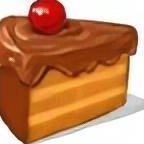Search the Community
Showing results for tags 'delphi'.
Found 278 results
-
Dllama, a simple and easy to use library for doing local LLM inference directly from Delphi (any language with bindings). It can load GGUF formatted LLMs into CPU or GPU memory. Uses Vulkan back end for acceleration. Simple Example uses System.SysUtils, Dllama, Dllama.Ext; var LResponse: string; LTokenInputSpeed: Single; LTokenOutputSpeed: Single; LInputTokens: Integer; LOutputTokens: Integer; LTotalTokens: Integer; begin // init config Dllama_InitConfig('C:\LLM\gguf', -1, False, VK_ESCAPE); // add model Dllama_AddModel('Meta-Llama-3-8B-Instruct-Q6_K', 'llama3', 1024*8, '<|start_header_id|>%s %s<|end_header_id|>', '\n assistant:\n', ['<|eot_id|>', 'assistant']); // add messages Dllama_AddMessage(ROLE_SYSTEM, 'you are Dllama, a helpful AI assistant.'); Dllama_AddMessage(ROLE_USER, 'who are you?'); // display the user prompt Dllama_Console_PrintLn(Dllama_GetLastUserMessage(), [], DARKGREEN); // do inference if Dllama_Inference('llama3', LResponse) then begin // display usage Dllama_Console_PrintLn(CRLF, [], WHITE); Dllama_GetInferenceUsage(@LTokenInputSpeed, @LTokenOutputSpeed, @LInputTokens, @LOutputTokens, @LTotalTokens); Dllama_Console_PrintLn('Tokens :: Input: %d, Output: %d, Total: %d, Speed: %3.1f t/s', [LInputTokens, LOutputTokens, LTotalTokens, LTokenOutputSpeed], BRIGHTYELLOW); end else begin Dllama_Console_PrintLn('Error: %s', [Dllama_GetError()], RED); end; Dllama_UnloadModel(); end.
-
Hey, I am trying to write simple application that works with Windows Clipboard (capture Clipboard changes (WM_CLIPBOARDUPDATE) and do some actions. Application uses TTrayIcon component. So, I can hide main window in notification area. If user press Print Screen button or copy text into Clipboard my application do some actions. One of the features is to show user a message (with some description text, icon etc) when application is hidden in tray. I do not use TTrayIcon Balloon hint (it is not good for me). Instead, I created second form and display it when clipboard change its content. It works fine, when application main window is visible (on screen). I set some options in form OnShow event and do some animation (to slide from right screen corner) in OnActivate event. It is OK. When application main window is hidded there is a big problem! What I do: Form2.Show; -> OnShow And OnActivate events are fired. BUT, if I show form2 again (second, third time), only OnShow event is fired - OnActivate event is not working! WHY? I hide mainform to Tray: Application.ShowMainForm := False; MainFrm.Hide; ShowWindow(Application.Handle, SW_HIDE); And I show it using: MainFrm.Show; Application.ShowMainForm := True; ShowWindow(Application.Handle, SW_SHOW); Application.BringToFront(); -Pawel
-
I thought it was me but it was NOT 2 computers on one Delphi 10..2.3 Windows 7 the other windows 10 and Delphi 11 on both the same problem 1. while changing component sources DPR changes to requires>>rrequires contains>>ocontains end>>d 2 drag does not work in IDE it works only under explorer since both problems are on different computers and IDE it is Delphi!!!!
-

challenge Offical launch of the 1 Billion Row Challenge in Object Pascal
Gustavo 'Gus' Carreno posted a topic in Tips / Blogs / Tutorials / Videos
Hey Y'All, Official launch of the 1 Billion Row Challenge Happy coding and don't forget to have fun!! Cheers, Gus- 69 replies
-
- object-pascal
- free-pascal
-
(and 1 more)
Tagged with:
-

ann New version of NextSuite6 (Grid, DBGrid, Inspector...) released 🚀
Bergsoft posted a topic in Delphi Third-Party
Dear visitors, We like to inform you that new version of NextSuite6 is released. Click here to read the release news. This update introduces a new grid view: StacksGridView, where columns from a each row are stacked into groups: Click here for Online Store and Prices . NextSuite includes always growing set of VCL components. Most important components are: NextGrid6 (StringGrid/ListView replacement, written from scratch). NextDBGrid6 (Db variant of the grid) NextInspector6 - An object inspector component. Next Collection 6 - A set of smaller components that are both useful and easy to use. Next Canvas Application - a drawing application that wysiwyg convert your drawings into a valid Delphi TCanvas code. and many more. Few screenshots: Download big demo project from: http://www.bergsoft.net/downloads/vcl/demos/nxsuite6_demo.zip Boki (BergSoft) boki@bergsoft.net | LinkedIn Profile -- BergSoft Home Page: www.bergsoft.net Members Section: users.bergsoft.net Articles and Tutorials: help.bergsoft.net (Developers Network) -- BergSoft Facebook page -- Send us applications made with our components and we will submit them in news article. Link to this page will be also set on home page too. -

ann New version of NextSuite6 (Grid, DBGrid, Inspector...) released 🚀
Bergsoft posted a topic in Delphi Third-Party
Dear visitors, We like to inform you that new version of NextSuite6 is released. Click here to read the release news. Click here for Online Store and Prices . NextSuite includes always growing set of VCL components. Most important components are: NextGrid6 (StringGrid/ListView replacement, written from scratch). NextDBGrid6 (Db variant of the grid) NextInspector6 - An object inspector component. Next Collection 6 - A set of smaller components that are both useful and easy to use. Next Canvas Application - a drawing application that wysiwyg convert your drawings into a valid Delphi TCanvas code. and many more. Few screenshots: Download big demo project from: http://www.bergsoft.net/downloads/vcl/demos/nxsuite6_demo.zip Boki (BergSoft) boki@bergsoft.net | LinkedIn Profile -- BergSoft Home Page: www.bergsoft.net Members Section: users.bergsoft.net Articles and Tutorials: help.bergsoft.net (Developers Network) -- BergSoft Facebook page -- Send us applications made with our components and we will submit them in news article. Link to this page will be also set on home page too. -
When compiling delphi fmx app using xcode 15.3 and 15.4 (beta) with IOS 17.4. The Delphi IDE returns the following error "Debbuging the application on device running IOS 17 or later is currently not supported." I urgently need to debug my app but I can't even use the IOS simulator. I'm using Delphi 12 but I've already tried it in Delphi 11.3
-
Good day, I would like to have ability in my project to show certificate details of signed executables. (From other executables) Is that possible with Delphi? Would love to get hints 'how-to'! //edit For now I have ability to get raw data thats appended to executables (overlay data) by simply check PE header for filesize and compare with real physical filesize.
-
I have this routine that lists all running processes in a listbox under Windows 7. However, it is not a complete list as I thought, because when I load up the Task Manager, it has more entries (when I select '[y] show processes from all users'). Here is a complete project listing showing two working methods to obtain the running processes into a listbox. The only limitations with these are that they show less entries than what the Task Manager shows. Question: How do I obtain that same listing in delphi that the Task Manager shows? TIA. unit Unit1; interface uses Winapi.Windows, Winapi.Messages, System.SysUtils, System.Variants, System.Classes, Vcl.Graphics, Vcl.Controls, Vcl.Forms, Vcl.Dialogs, Vcl.StdCtrls, Vcl.ExtCtrls, Vcl.ComCtrls; type TForm1 = class(TForm) Panel1: TPanel; PageControl1: TPageControl; TabSheet1: TTabSheet; TabSheet2: TTabSheet; m1: TMemo; lb1: TListBox; btnGetProcesses1: TButton; Splitter1: TSplitter; btnPause: TButton; st1: TStaticText; btnGetProcesses2: TButton; procedure btnPauseClick(Sender: TObject); procedure btnGetProcesses2Click(Sender: TObject); procedure btnGetProcesses1Click(Sender: TObject); private { Private declarations } public { Public declarations } procedure GetProcesses_1; procedure GetProcesses_2; end; var Form1: TForm1; ts: tstrings; n: integer=0; // out counter for the listbox of items. implementation {$R *.dfm} uses tlHelp32; procedure tform1.GetProcesses_1; // #1 var handler: THandle; data: TProcessEntry32; PID: cardinal; function GetName: string; var i:byte; begin Result := ''; i := 0; while data.szExeFile[i] <> '' do begin Result := Result + data.szExeFile[i]; //PID := data.th32ProcessID; Inc(i); end; end; begin n:=0; ts:=tstringlist.Create; Data.dwSize := SizeOf(Data); form1.DoubleBuffered:=true; lb1.DoubleBuffered := true; lb1.Items.BeginUpdate; lb1.Items.Clear; lb1.Sorted:=true; handler := CreateToolhelp32Snapshot(TH32CS_SNAPALL, 0); if Process32First(handler, data) then begin ts.Add(GetName()); //lb1.Items.Add({inttostr(data.th32ProcessID) + ': '+}GetName()); while Process32Next(handler, data) do begin ts.Add(GetName()); inc(n); //lb1.Items.Add({inttostr(data.th32ProcessID) + ': '+}GetName()); end; end else ShowMessage('Error'); lb1.Items.EndUpdate; lb1.Items.Assign(ts); st1.Caption := inttostr(n); ts.Free; end; procedure TForm1.btnGetProcesses1Click(Sender: TObject); begin GetProcesses_1; end; procedure tform1.getprocesses_2; // method #2, from https://www.vbforums.com/showthread.php?350779-Delphi-Getting-Running-processes-into-a-List-Box-and-Kill-Selected var MyHandle: THandle; Struct: TProcessEntry32; begin n:=0; try MyHandle:=CreateToolHelp32SnapShot(TH32CS_SNAPPROCESS, 0); Struct.dwSize:=Sizeof(TProcessEntry32); if Process32First(MyHandle, Struct) then form1.lb1.Items.Add(Struct.szExeFile); while Process32Next(MyHandle, Struct) do begin form1.lb1.Items.Add(Struct.szExeFile); inc(n); end; except on exception do ShowMessage('Error showing process list'); end end; procedure TForm1.btnGetProcesses2Click(Sender: TObject); // method #2 begin n:=0; getprocesses_2; st1.Caption := inttostr(n); end; end.
- 3 replies
-
- delphi
- task manager
-
(and 3 more)
Tagged with:
-
The app I'm working on has different "screens", which are each essentially large bitmaps. When closing a screen to go to the next one, the following code provides a fade-to-black transition effect: procedure TGameBaseScreen.FadeOut; var Steps: Cardinal; i: Integer; P: PColor32; StartTickCount: Cardinal; IterationDiff: Integer; RGBDiff: Integer; const TOTAL_STEPS = 32; STEP_DELAY = 12; begin Steps := 0; StartTickCount := GetTickCount; while Steps < TOTAL_STEPS do begin IterationDiff := ((GetTickCount - StartTickCount) div STEP_DELAY) - Steps; if IterationDiff = 0 then Continue; RGBDiff := IterationDiff * 8; with ScreenImg.Bitmap do begin P := PixelPtr[0, 0]; for i := 0 to Width * Height - 1 do begin with TColor32Entry(P^) do begin if R > RGBDiff then Dec(R, RGBDiff) else R := 0; if G > RGBDiff then Dec(G, RGBDiff) else G := 0; if B > RGBDiff then Dec(B, RGBDiff) else B := 0; end; Inc(P); end; end; Inc(Steps, IterationDiff); ScreenImg.Bitmap.Changed; Changed; Update; end; end; Is there any way this same code can be modified to create a new FadeIn; procedure which allows the screen images to fade-in-from-black? I'm guessing I need to first specify that RGB := 0, 0, 0 and then increase the RGB values until they reach the actual bitmap values. Do I first need to "get" those values somehow? Or, is there a better way to achieve the Fade In/Out procedures? (note that we're dealing with combined bitmaps here, rather than single images)
-

android Delphi Android Intent while App is active creates black screen
DominikR posted a topic in FMX
Hey, i updated RAD Studio to version 12 last week. Now i wanted to update my app to work with the new android play store requirements. While testing my features i found out, that my app keeps on hanging on a black screen when i try to import a text file with a file explorer. When i manually close the app, and choose a text file and open it with my app it is working fine, but when i open the app, and then go back to my file explorer select the text file to open it again it hangs in a black screen. I tried it also with a completely new project and had the same result. I am using a Pixel 8 with Android 14. I added this intent filter to my AndroidManifest.template.xml in the activity section: <activity android:name="com.embarcadero.firemonkey.FMXNativeActivity" android:exported="true" android:label="%activityLabel%" android:configChanges="orientation|keyboard|keyboardHidden|screenSize|screenLayout|uiMode" android:launchMode="singleTask"> ... <intent-filter> <action android:name="android.intent.action.VIEW" /> <category android:name="android.intent.category.DEFAULT" /> <category android:name="android.intent.category.BROWSABLE" /> <data android:mimeType="text/plain" /> </intent-filter> </activity> And handle it like that: var currentIntent := MainActivity.getIntent(); HandleIntentAction(currentIntent); The handling works like a charm. When starting the app in debugging nothing happens, also logcat is showing noting in regards of my app. I also added some ShowMessages to the FormCreate functions, but also nothing. I added two logcat logs as an attachment to this post. In my opinion there is nothing wrong in the not working log. In addition to the hanging, is there a possibility to open a view directly with an intent because when i try to do a form.show it wont show up, but i haven't followed up on this issue because i wanted to resolve the black screen first. Thank you in advance! Kind regards, Dominik not_working.log working.log -
Hello everyone, I'm seeking insights on database development practices in Delphi with Firebird. I have two specific questions: When it comes to database development in Delphi, what is the recommended approach: utilizing data-aware components like drag-and-drop fields and linking with TFDQuery for CRUD operations, or segregating CRUD operations into separate units for forms? I'm particularly interested in understanding the balance between ease of use, efficiency and code usability. Any insights or examples you can provide would be greatly appreciated. Often, we encounter situations where we need to fix a bug or implement changes in just one form out of many (over 100 forms) within our system. Currently, we update the complete executable, which includes all VCL forms in one project. What would be the best approach to handle such incremental updates efficiently without impacting all clients? I'm eager to learn about effective strategies in this scenario. Thank you for your valuable input. Warm regards, Noor
-
Hi, Anyone went through the Delphi Certified Developer Exam recently ? What sort of questions you got asked ? Any tips to pass the exam ? Thank you.
-
I have a pascal project and looking for a static scanning tool for security code review for the Pascal programming language. All the tools out there that i found so far were only for performance code review and not for security. Anyone knows a tools that can do the job? Some scanning tool and I expect it to help me find security flaws in my project, but couldn't find a good security tool.
-

Delphi Report Builder - Failed to export report on second attempt
Hrushikesh Shet posted a topic in VCL
We have an application built in Delphi XE6. We are using the component named 'TppReport' from the report builder to generate the reports. Currently, we are facing an issue while exporting the report. The application can generate and export the report in the respective format for the first time. However, when we try to export it for the second consecutive time, the file is not generated. If we restart the application then the report is generated and exported only for the first time instance. When we tried to debug this behavior we came to know that we were getting an access violation error in the RequestPage procedure inside that generate method of ppEngine.pas file. This error comes up when we execute the line CustomReport.PrintReport. This happens when we have bands in the report. Below are more details - Delphi Version - XE6 Version 20.0.16277 Report Builder Version - 20.04 Build 302 Any help would be appreciated. -
I have installed PowerPDF in Delphi 12 via GitHub. The master package in Git seems to be made ready for Delphi12 (there is an 11AndAbove subdir). In previous Delphi versions I used to install PowerPDF via GetIt, but the package still is not available. After about 3 months I can no longer wait. Anyway, it looks like the installation was a success: all controls are in place, and I can drop a TPrReport component on a form. However, the next step, i.e. to drop a TPrPage, fails, showing the "Class Arial not found" message. Since a TPrPage is the container for all other PowerPDF controls, the package is unusable. I have no idea how to get it to work. Do you? I very much appreciate your help or hints.
-
Hi in delphi 12 show this error [DCC Error] E2597 ld: file not found: /usr/lib/swift/libswiftUIKit.dylib Which framework do I need to add? Delphi 12 , XCODE 13.4 Thanks
-
I got stuck with a massive source base in Delphi 2007. I upgraded to Delphi 2010 but the prospect of upgrading my whole software base and the 3rd party stuff through unicode was too much so it dropped thought. When Embarcadero did a trade show in my area, I was intrigued by the idea of developing web apps and I bought XE3. But I wasn't impressed and it didn't seem to be able to create web apps anyway. I experimented a bit but after a week, uninstalled Delphi XE3. Now, I see in my Delphi Account at Embarcadero thet there is a XE5 ISO. Does that mean I get a free upgrade to XE5? I emailed but never got an answer! I'm just wondering if it is worth a try. I would like to hear what anyone else has to say...
-
I was searching around bestbuy for a streaming device that I could hook up my phone to the device and connect it to my laptop. And after searching around I saw that there are other ways to stream using OBS software on the laptop and installing an app on the phone via an ipp address. Is there a way to do this with Delphi so I don't have to worry about installing someone's app and being on *their* server? I would rather do it the Delphi way if possible, TIA.
-

TValueListEditor - How can I add a wordwrap feature to the Values column?
JohnLM posted a topic in VCL
I am just starting to use the TValueListEditor and found out that there is no wordwrap feature. I have text that are longer than I can see and there is no scroll feature. Actually, there is, but it does not do what I expect it to do as a scroll (left/right), but even so, it would be too cumbersome to utilize. I would much prefer to have the text wordwrapped. Is there a way I can easily add a custom wordwrap to it?- 1 reply
-
- delphi
- tvaluelisteditor
-
(and 1 more)
Tagged with:
-
Since years, our Open Source mORMot framework offers several ways to work with any kind of runtime arrays/objects documents defined, e.g. via JSON, with a lot of features, and very high performance. Our TDocVariant custom variant type is a powerful way of working with such schema-less data, but it was found confusing by some users. So we developed a new set of interface definitions around it, to ease its usage, without sacrificing its power. We modelized them around Python Lists and Dictionaries, which is proven ground - with some extensions of course. Two one-liners may show how our mORMot library is quite unique in the forest/jungle of JSON libraries for Delphi (and FPC): +] assert(DocList('[{ab:1,cd:{ef:"two"}}]')[0].cd.ef = 'two'); assert(DocList('[{ab:1,cd:{ef:"two"}}]').First('ab<>0').cd.ef = 'two'); Yes, this code compiles and run on Delphi - even the antique Delphi 7. 😆 If you compare e.g. to how the standard JSON library works in the RTL, with all its per-node classes, you may find quite a difference! And there is no secret in regard to performance, that our JSON processing is fast. More info: https://blog.synopse.info/?post/2024/02/01/Easy-JSON-with-Delphi-and-FPC
-
Is there any way to Filter TMS HTMListBox Items like TMS AdvListBox
-

Delphi Android service was stopped after closing the android application
Sathiya89 posted a topic in Cross-platform
I have used Delphi 12 for developing Android application and I'm trying to Service which needs to runs in the background to receive the frequent messages from Server using TCP sockets to displays the notifications. But, the service is deactivated / closed after the main process application is closed. Below, the code is mentioned the code to start the service : procedure TForm1.ButtonServiceStartClick(Sender: TObject); var ServiceIntent: JIntent; begin ServiceIntent := TJIntent.Create; ServiceIntent.setClassName(TAndroidHelper.Context, StringToJString('com.embarcadero.services.MyService')); TAndroidHelper.Context.startService(ServiceIntent); end; and also, I have added the following service information in AndroidManifest.template.xml : <service android:enabled="true" android:exported="false" android:label="MyService" android:process=":remote" android:name="com.embarcadero.services.MyService"> </service> Code in Service: function TDM.AndroidServiceStartCommand(const Sender: TObject; const Intent: JIntent; Flags, StartId: Integer): Integer; begin Result := TJService.JavaClass.START_STICKY; end; I have tried to use this Solution, but not able to compile. And tried to implement the Sleep in Android Start command / run the thread, still the android service is getting closed. Do, I need to mentioned the different flag for starting the service or do I need to add additional code to run the service all the time or can we restart the service once it's destroyed and how to handle the code in Destroy event? -
I use ms powerpoint to hold and store all my screenshots of various things throughout the day using my main laptop. I especially do this for items I purchase on Amazon and Ebay. However, on my tablet I cannot do this since I don't have MS Office on it. So now, I would like to create a rolling image bar that holds/shows all my screenshots made on the tablet and then save them all in one file, like a project. I want to do something very similar to what powerpoint does, but nothing fancy. Just a vertical toolbar that holds/shows all images I made. Is there a component that can help me halfway through this project idea, or can I build something close to what I want to do with the tools/components already built into D11/D12 ? In my vision of such a tool, I have the following: 1. a panel/toolbar 2. an timage 3. button to capture the screenshot(s) 4. add/create a new timage in the toolbar every time I take a screenshot (get from cliboard, etc) 5. scroll up/down inside the toolbar of images that I took thus far 6. a main timage that shows the screenshot I take 7. and if I click on any of the images in the toolbar, that image will show on the main timage 8. save and load buttons All this in the above steps are basically what I do in ms powerpoint.
![Delphi-PRAXiS [en]](https://en.delphipraxis.net/uploads/monthly_2018_12/logo.png.be76d93fcd709295cb24de51900e5888.png)










